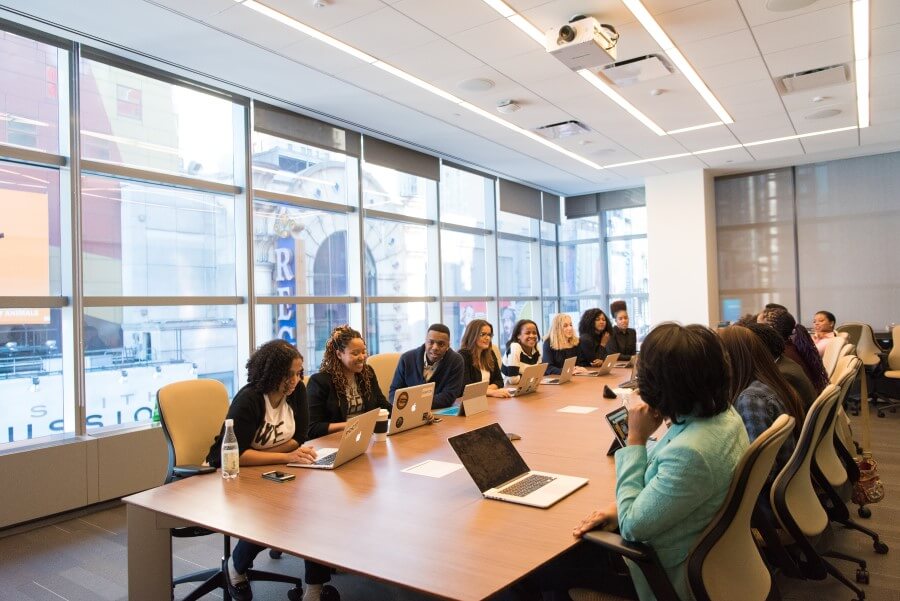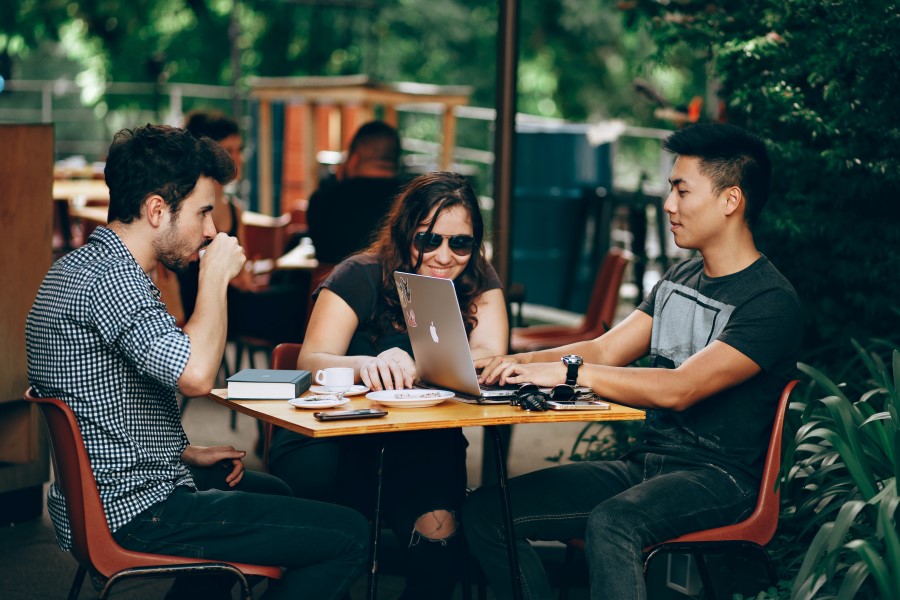
Dr Juliane Schwarz presents the findings from a study examining the effects of COVID-19 and nationwide lockdowns on an accelerator programme based in London, and how the move to online provision has impacted their work.
Accelerators are start-up programmes that bring entrepreneurs together, face-to-face, for intensive interaction with experts and other entrepreneurs. As cities in miniature, they mimic and optimise urban features such as matching, sharing, learning effects at a much smaller scale. The programmes encourage founders to develop peer relationships which are regarded as important for start-ups and young businesses and a central focus of accelerators. What happens to such a programme during the COVID-19 pandemic and the nationwide lockdowns? What happens when a programme encounters a major crisis, and how could participants respond?
The following blog examines this question by using a London-based accelerator as a case study. The analysis is based on interview data of managers and participants as part of a larger evaluation programme.
Our case study programme
Our case study programme – run by a leading provider in London – were in their third week of a three-month programme when the UK government announced the national lockdown in March 2020. As with many accelerators, they have a cohort structure with meetings and workshops delivered face to face. The programme utilises peer-to-peer and expert learning to support founders of early start-ups. Its particular emphasis is on the personal development and mental wellbeing of the participating founders. As with many other businesses, organisers have had to very quickly adapt and deliver their programmes virtually.
Virtual accelerators
Virtual accelerators have existed before the pandemic, however, they have not been very frequent. In the Business Incubators and accelerators: UK directory only seven out of 159 accelerators are listed as online accelerators in 2018. And, those accelerators which are developed as online programmes are not always fully virtual. They often include shorter periods of non-virtual meetings at the beginning, middle and end of the programme for founders to develop these all-important peer relationships.
Changes in the programme delivery
The core elements of the case study accelerator programme are mentoring and business advice, small-group peer-to-peer learning and workshops for the whole cohort. In the absence of meetings, communication between programme organisers and the cohort has been done via emails.
The easiest parts to move online have been the mentoring and business advice one-to-ones. These are held by phone, zoom or any communication programme available.
The small-group peer-to-peer learning has been done by any communication programme available to the participants (Zoom, Teams). They have been encouraged by email to continue their meetings in the format practised (as they all have had one small-group meeting before lockdown) and at the dates in the programme. It is left to the participants to choose the time of the meetings to accommodate any caring responsibilities.
Workshops are delivered using various online learning tools and online whiteboards to encourage engagement and sharing.

What couldn’t move online?
Eating together and sharing a meal, which organisers considered important for the success of the accelerators, could not be moved online. These meals have the double function of sustaining participants during the meetings which could last up to three and a half hours. Eating together also helps with the informal connection amongst participants establishing important links with each other and evolving their networks.
Similarly, organisers have noticed that informal interaction before and especially after meetings have stopped when the zoom call closed down. After face-to-face meetings and workshops, there is usually a high-energy buzz amongst the participants. They share ideas, further develop concepts and strategies and thus adapt, apply and incorporate the new learning with each other. One manager describes this as ‘they could hardly move the participants out of the room’. These informal and highly motivating interactions do not happen after the programme has gone online.
In addition, organisers identify the workshop elements of the programme as most challenging in terms of achieving the same level of depth in learning and understanding as face-to-face workshops. Some of these rely on a high amount of rapport between the facilitator and participants. This seems to be more difficult to achieve within a virtual environment as they address more private and personal aspects of starting a business, e.g., founders’ fear of failure, their mental well-being and the experience of burnouts during the process. Organisers agree that workshops delivered online should be kept shorter than workshops delivered face-to-face.
How did the participants experience the move online?
Most participants agree that they would have preferred the programme to be face-to-face as originally intended. Nevertheless, feedback from participating founders is predominantly positive. Meeting regularly for the programme and receiving support from their peers, programme managers, and workshop facilitators, albeit online, are described by some as a ‘lifeline’. It seems to alleviate additional isolation caused by the lockdown. Some of the peer-to-peer learning groups have continued meeting after the programme ended all the way through the lockdown. Most mention that they are glad that the programme continued where others have stopped.
However, there are also incidences where participants have not coped very well. Caring responsibilities or being ill have prevented some to continue with the programme. One participant has left because of the technical aspects involved in online meetings. Also, virtual meetings are not seen as being supportive for honest sharing and showing vulnerability.
Outcomes for their businesses
The effect of the pandemic is considerable for most programme participants. Due to changes in their physical and mental wellbeing, some participants do not continue with their business for the foreseeable future. Others are trying to persist as long as it is possible. Some are doing very well, particularly if their business offers an online service needed during lockdowns, e.g., delivering training on online skills and programmes. Quite a lot of the participants, however, have diversified and adapted their business model to the new situation. The changes range from founders developing services that were still tradeable during the lockdown, e.g., a photographer moving to webpage design. Other start-ups have moved their services to online, e.g., a yoga instructor delivering online training, a counsellor connecting on Zoom with her clients, a live musician recording her songs. Others have transferred into the health sector, e.g., a fashion start-up designing health care products.
Participants mention various ways in which the accelerator has helped them and their businesses during the lockdown in 2020. The programme has encouraged the founders not to give up their businesses and find alternative products and goods still sought after during the pandemic. They receive support for online trading and establishing connections and networks to facilitate next steps, especially when the founder has developed products and services for a new sector.
This blog was written by Dr Juliane Schwarz, Research Fellow, City-REDI and WM REDI.
Disclaimer:
The views expressed in this analysis post are those of the authors and not necessarily those of City-REDI or the University of Birmingham.
